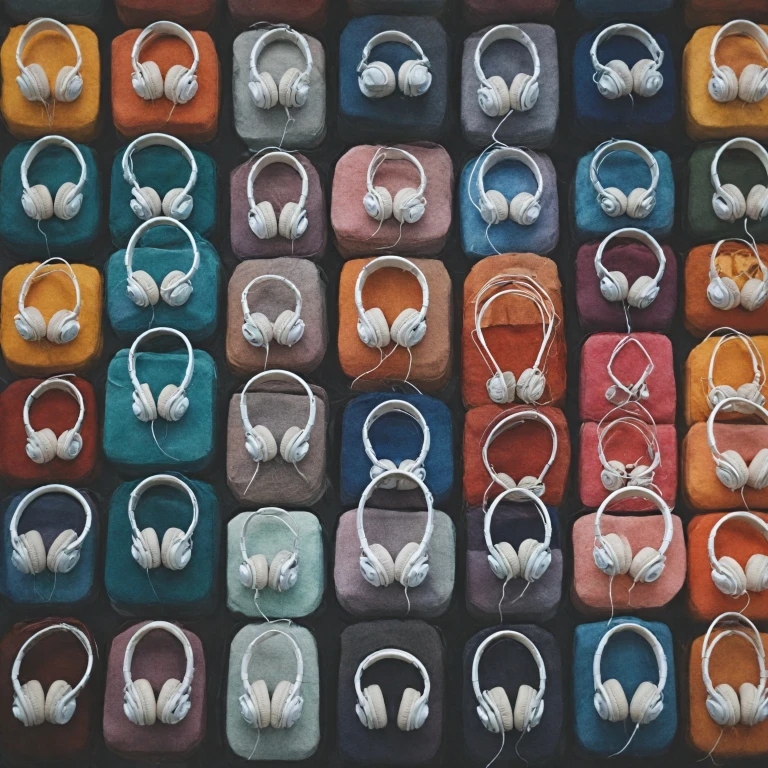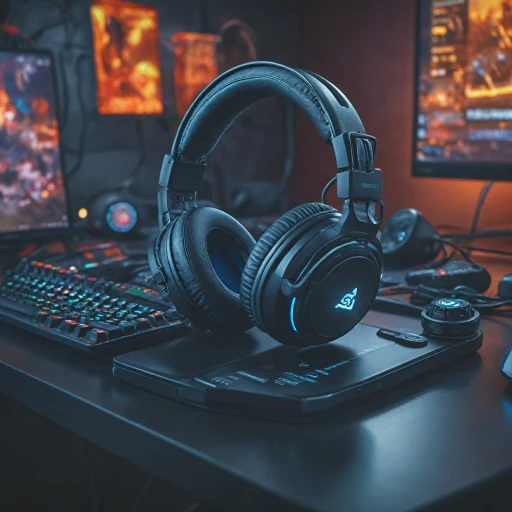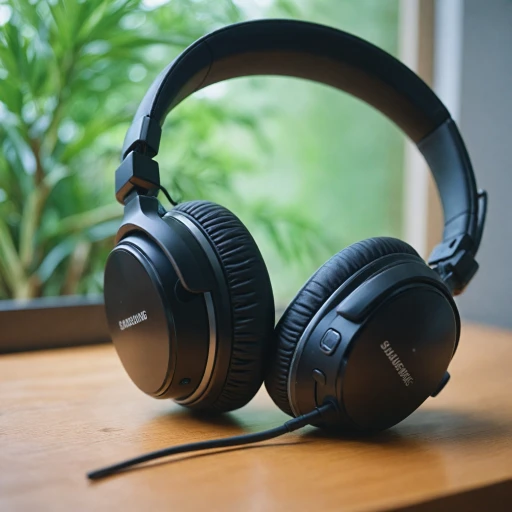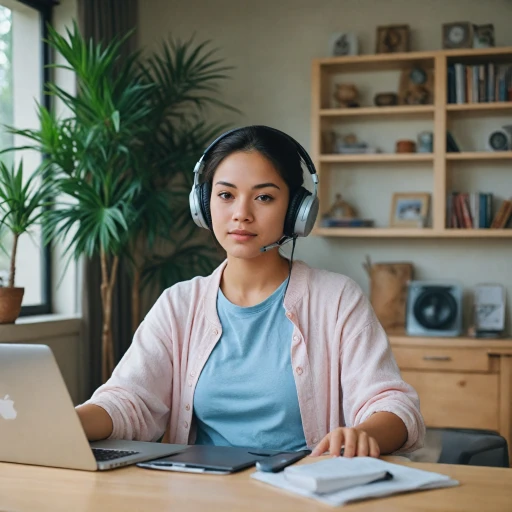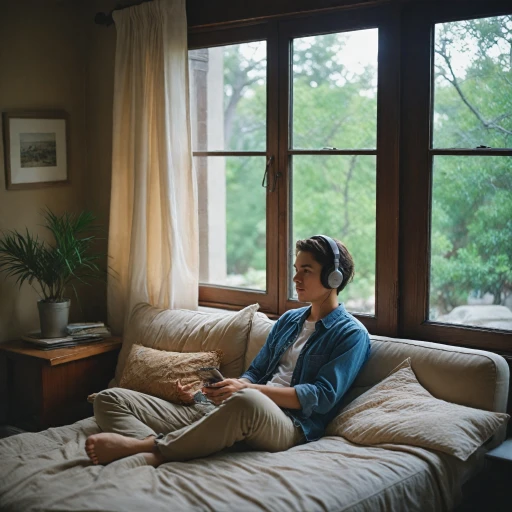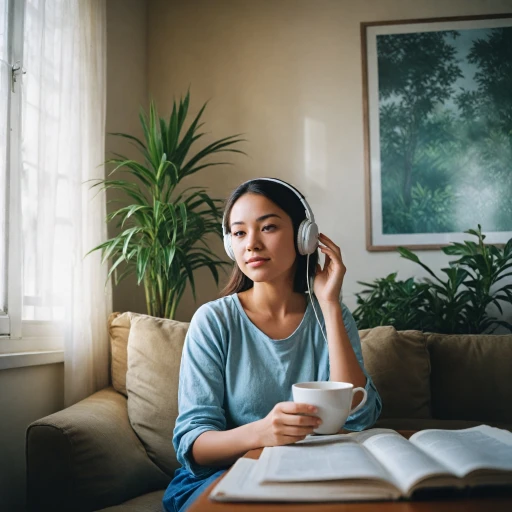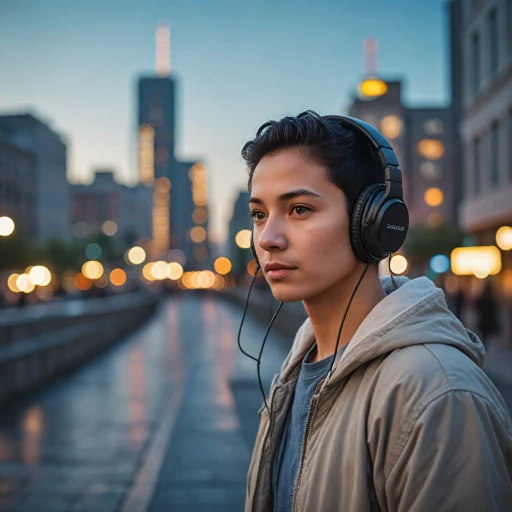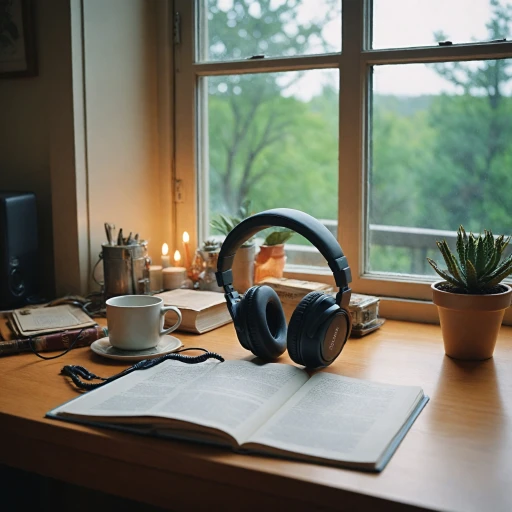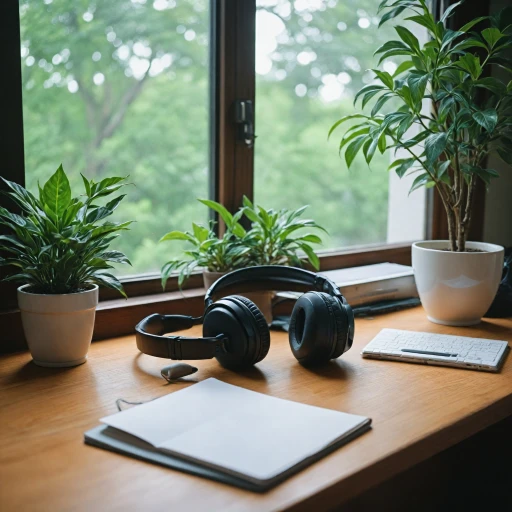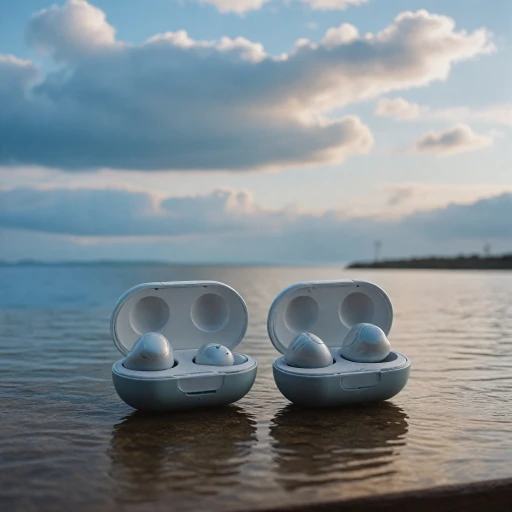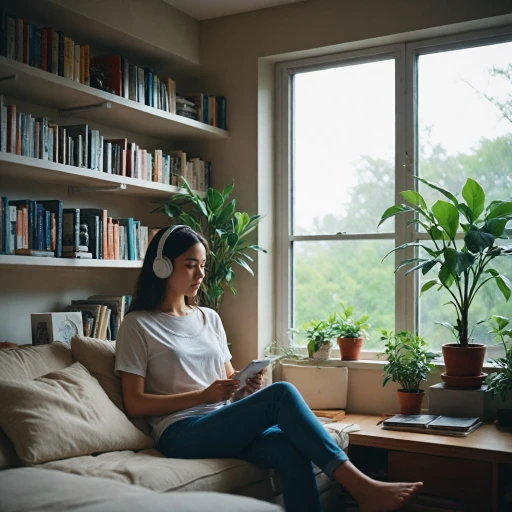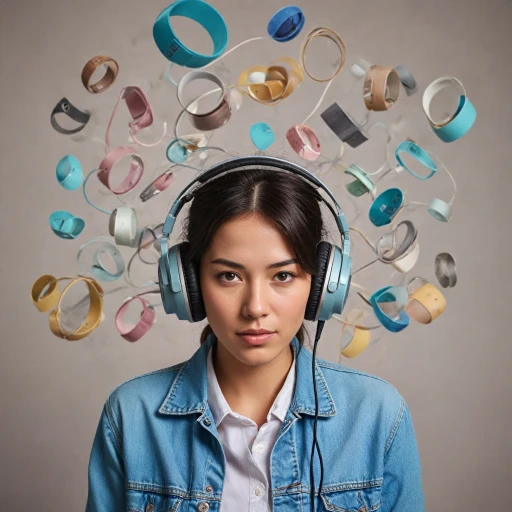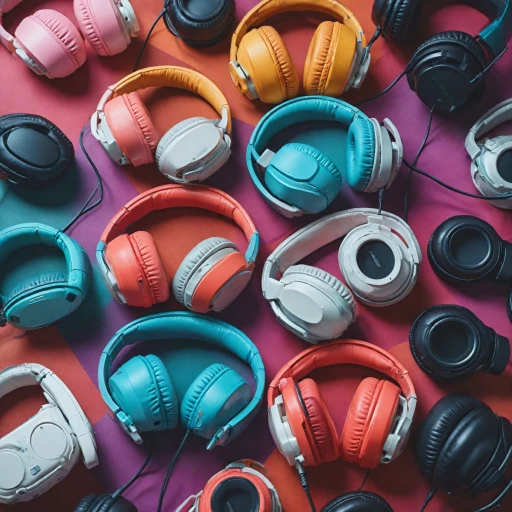
Understanding Noise-Canceling Technology
Exploring Noise Cancellation Techniques
When it comes to headphones, one of the most sought-after features is noise canceling. But understanding the underlying technology is crucial in making an informed choice. At its core, active noise cancellation involves the use of microphones to pick up ambient sounds. The headphones then produce a counteracting sound wave to effectively cancel out the noise, resulting in an improved listening experience.
There are different types of noise canceling headphones available, including over-ear and in-ear models. Each model offers unique benefits, which you'll want to compare based on your personal preferences and intended use.
Companies like Bose are known for their QuietComfort headphones, which are renowned for their noise reduction capabilities and superior sound quality. Bose's active noise canceling technology has set a benchmark in the industry, offering advanced audio performance.
Understanding how different headphones manage noise can also help you prioritize features like sound quality, Bluetooth connectivity, and battery life. For instance, while some cancelling headphones offer extensive hours of battery life, others may prioritize sound quality and audio clarity.
To get a better grasp on how noise canceling can impact your audio experience and what features you should look for, consider heading over to this comprehensive guide. This resource will also help you weigh budget considerations against price and value.
Key Features to Look for in Noise-Canceling Headphones
Essential Characteristics to Consider
When venturing into the world of noise-canceling headphones, several features can significantly influence your listening experience. Understanding these characteristics can not only enhance audio enjoyment but also ensure that the headphones you choose align with your lifestyle needs.
Sound and Noise Cancellation
The primary role of noise-canceling headphones is to offer top-tier sound quality while minimizing external noises. Active noise cancellation (ANC) technology is a must-have feature that actively reduces unwanted ambient sounds. Options like the Bose QuietComfort series are known for their exceptional ANC capabilities, ensuring you experience your music without disturbances.
Wireless and Battery Performance
Modern consumers often prioritize devices that offer the flexibility of wireless connectivity. Bluetooth-enabled headphones and wireless earbuds eliminate the hassle of tangled cords, enhancing mobility. It's also crucial to consider the battery life; some models promise up to 20 hours of playtime on a single charge. Integrating a USB-C charging option can also speed up the charging process.
Durability and Build
When investing in canceling headphones, durability is equally important as sound performance. Look for models made with high-quality materials and a reputation for robustness, often available in sleek colors like black. The build quality often correlates with the original price, where premium options may offer lasting durability.
Additional Technology and Features
High-end headphones today integrate cutting-edge features like spatial audio for an immersive listening experience. Other advancements, such as quick attention modes and voice assistants, can elevate the practicality and enjoyment of your audio gear.
By focusing on these key features, you not only ensure quality performance but also find the best fit for your noise-canceling needs. Price variations can often reflect these features, ensuring an informed choice accords with both your budget and expectations.
Comparing Over-Ear vs. In-Ear Models
Over-Ear and In-Ear Models: Which Suits You Best?
When it comes to noise-canceling headphones, deciding between over-ear and in-ear models is an essential step in selecting the right fit for your needs. Both styles offer unique benefits, which can impact how you experience sound quality, noise cancellation, and comfort.
Advantages of Over-Ear Noise-Canceling Headphones
Over-ear headphones, like the popular Bose QuietComfort series, offer robust active noise cancellation and sound quality, enveloping your ears entirely to block out external noise effectively. They're ideal for immersive listening experiences, particularly in noisy environments such as airplanes or bustling offices.
- Superior noise isolation due to larger ear cups
- Better sound quality with spacious audio dynamics
- Longer battery life for continuous listening, often spanning several hours
Benefits of In-Ear Noise-Canceling Earbuds
In-ear models, such as wireless earbuds, present a compact and portable alternative to their over-ear counterparts. They are particularly advantageous for those seeking convenience without sacrificing active noise cancelling capabilities.
- Portability and ease of transport without compromising on sound
- Effective noise cancellation in a smaller form factor
- Connectivity options including Bluetooth and USB for convenience
Comparing these two options involves understanding your personal requirements for audio quality, noise protection, and comfort. If longevity and a premium listening experience outweigh the need for mobility, over-ear models may prove more advantageous. Conversely, if sleek design and portability are paramount, in-ear wireless earbuds could be your preference. Evaluating these aspects helps ensure you choose headphones that meet both your auditory preferences and lifestyle needs.
Evaluating Comfort and Fit
Prioritizing Your Comfort and Fit
When selecting the perfect pair of noise canceling headphones, comfort and fit should be a top priority. Whether you're using them for long plane journeys, hours of focus work, or intense gym sessions, the right fit can make a significant difference in your overall experience. Firstly, consider the type of headphones that suit your needs—over-ear or in-ear. Over-ear models like Bose QuietComfort headphones envelop your entire ear, offering exceptional noise cancellation and sometimes a more immersive sound experience. On the other hand, wireless earbuds provide greater portability and can be more comfortable for outdoor activities. Here are some key aspects to consider:- Adjustable Fit: Look for headphones with adjustable headbands or ear tips. This ensures that they accommodate different head sizes and ear shapes, providing a snug yet comfortable fit.
- Material and Padding: Some models offer plush padding in ear cups, which enhances comfort during prolonged use. Materials like memory foam adapt to your ear shape and can also aid in passive noise reduction.
- Weight: Heavier headphones like some high-end over-ear models might offer superior sound quality but could become uncomfortable after extended wear. Compared to lighter models, heavier units can be burdensome during physical activities.
- Clamping Force: This refers to how tightly the headphones sit on your ears or head. A moderate clamping force can ensure they stay put without feeling too tight.
Assessing Brand Reputation and Reviews
Investigating Brand Reliability Through Reviews
When selecting noise-canceling headphones, assessing the reputation of the brand can serve as a crucial guide to understanding both quality and reliability. Trusted brands typically provide consistency in delivering excellent sound quality and effective active noise cancellation. Here's what you should consider:- Industry Reputation: Companies with solid industry standings, such as the highly-regarded Bose with its QuietComfort series, often maintain high standards. Their active noise cancellation technology in products like the QuietComfort headphones is often a benchmark in the industry.
- Customer Reviews: Listen to the experiences of other consumers through reviews. Pay particular attention to comments regarding the longevity and effectiveness of the noise cancellation feature, the wireless headphones' connectivity, and overall sound quality. Evaluate both positive and negative feedback to gain a balanced perspective.
- Technical Support and Warranty: Brands offering responsive customer service and comprehensive warranty policies can add value, ensuring long-term satisfaction with your purchase. Consider manufacturers that are known for excellent after-sales support; this could potentially save you substantial resources over time.
Reliable Brands and Market Leaders
Well-established brands often have a track record of delivering consistency. Choose brands known for their expertise in audio technology. Bose, for example, is a notable contender with a loyal customer base, particularly for its sophisticated noise cancelling headphones such as the QuietComfort Ultra. Additionally, evaluate the offerings of other brands in the market to compare their features and price points with your budget constraints. Compare original price to any price savings available to determine the best value for your investment. Ultimately, brand reputation combined with carefully considering the features and comfort can guide you to the best set of headphones for your needs. Prioritize attributes that enhance your listening experience, such as wireless capabilities and battery life, ensuring your chosen headphones align with your lifestyle and audio expectations.Budget Considerations and Value for Money
Balancing Cost and Quality
When it comes to choosing noise canceling headphones, finding the right balance between cost and quality is crucial. While it's tempting to go for the most affordable option, it's important to consider the features and sound quality you might be sacrificing. High-end models like the Bose QuietComfort series are known for their exceptional active noise cancellation and sound quality, but they come with a higher price tag. On the other hand, there are budget-friendly options that offer decent performance without breaking the bank.
Understanding the Price Range
The price of noise canceling headphones can vary significantly, from under $50 to over $400. The original price of premium models often reflects advanced features such as spatial audio, extended battery life, and superior build quality. However, mid-range headphones can offer a good compromise, providing solid noise cancellation and sound quality at a more accessible price point.
Evaluating Value for Money
To assess value for money, consider the features that are most important to you. Do you prioritize wireless connectivity and long battery life? Or is sound quality your main concern? Wireless headphones with Bluetooth capabilities and long hours of battery life are ideal for those on the go, while wired options might offer better sound fidelity. Additionally, look for models that offer USB charging for convenience.
Brand Reputation and Longevity
Investing in a reputable brand can often save you money in the long run. Brands like Bose and their QuietComfort headphones are renowned for their durability and excellent customer support. Reading reviews and comparing models can help you identify which headphones offer the best protection against noise and the best value for your money.
Finding Deals and Discounts
Keep an eye out for sales and discounts, especially during major shopping events. You might find the price of high-quality headphones significantly reduced, allowing you to save money while still enjoying premium features. Comparing prices across different retailers can also help you find the best deal.

